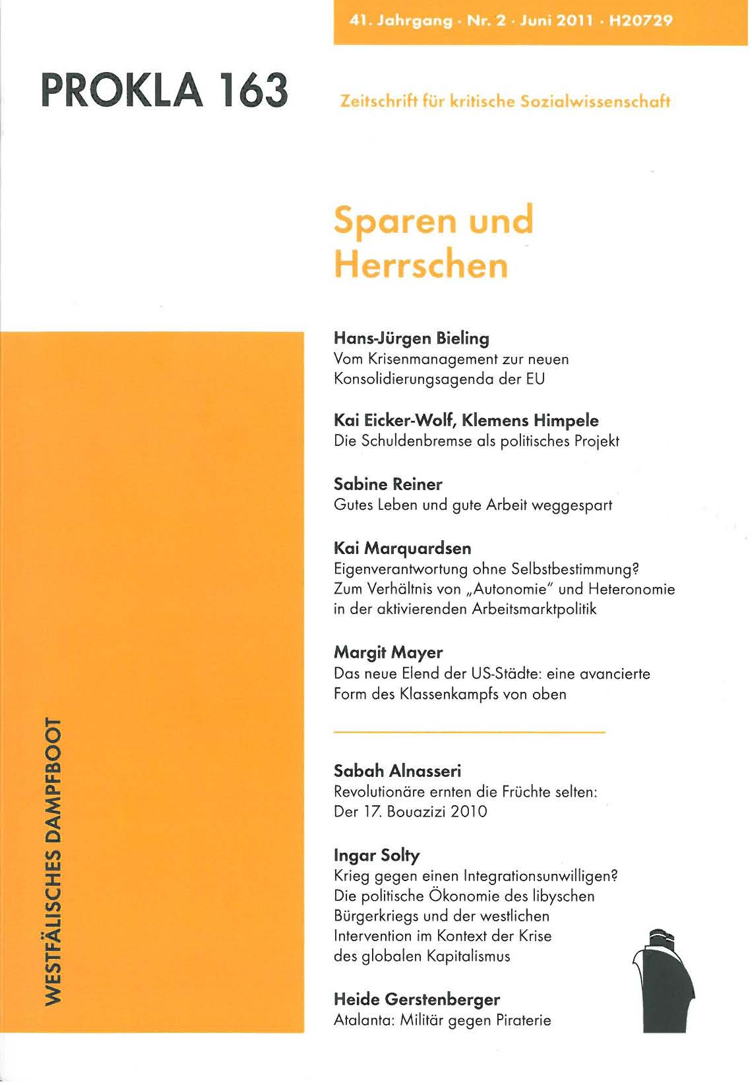Vom Krisenmanagement zur neuen Konsolidierungsagenda der EU
DOI:
https://doi.org/10.32387/prokla.v41i163.348Keywords:
Krise, EU, Wirtschaftskrise, SchuldenAbstract
Over the past years the economic crisis has been sensibly displaced. Starting as a subprime crisis in the US, it soon unfolded as a global economic and financial crisis. European countries confronted the crisis with banking rescue packages, economic stimulus programmes, automatic stabilisers and a common emergency fund for endangered states of the Eurozone. Consequently, not only private, but also public debt increased. The crisis therefore evolved towards a fiscal crisis and moved into the political system. Against this background, the article investigates the articulation of political economic interests and initiatives in the European management of the debt crisis. It argues that the emergence of a new austerity oriented fiscal consolidation agenda reflects a strengthened position of creditors and owners of financial assets. However, given the unequal – European and domestic – distribution of the adjustment burden, the revitalisation of European financial market capitalism remains characterised by intensified social struggles.






